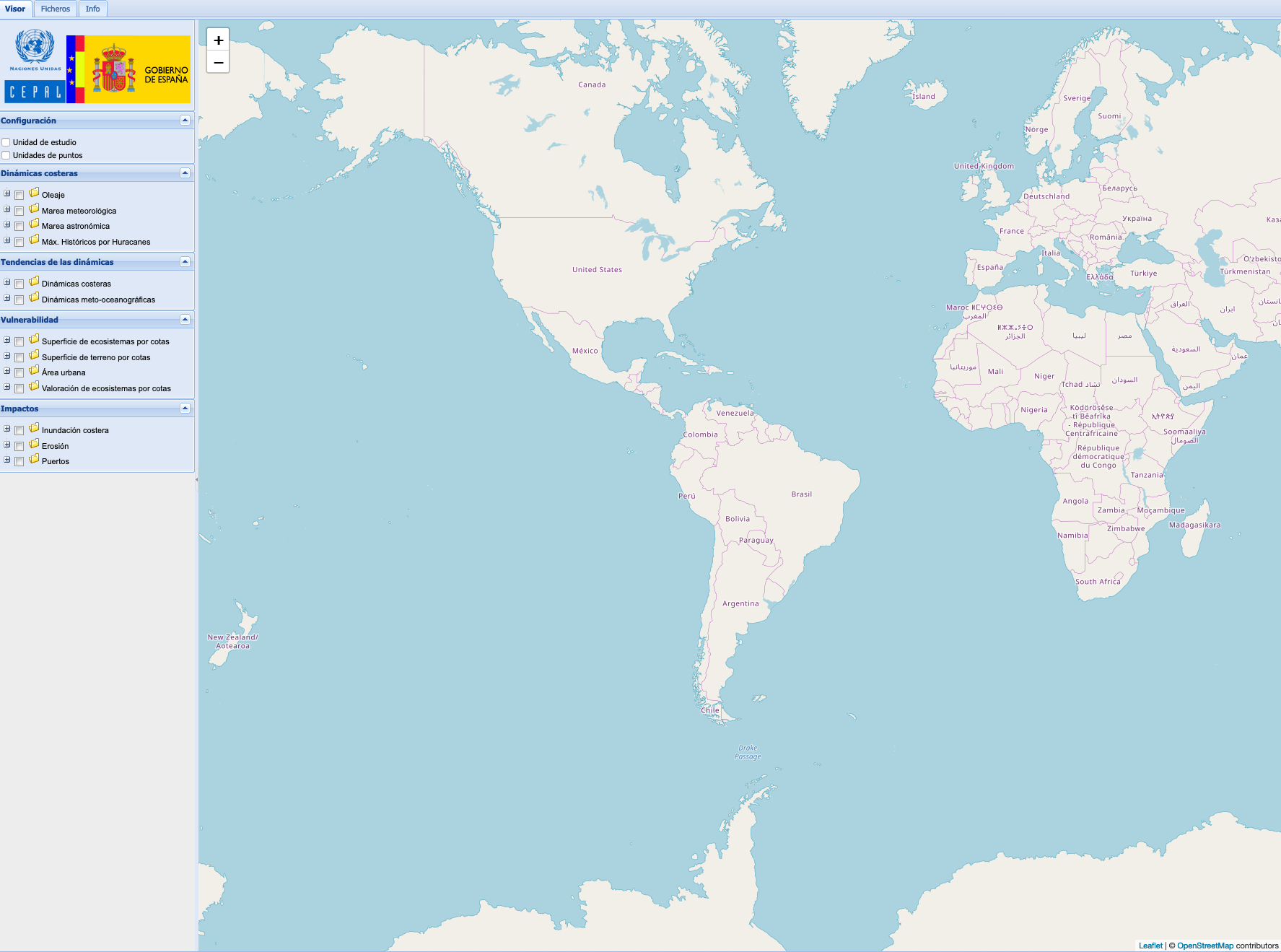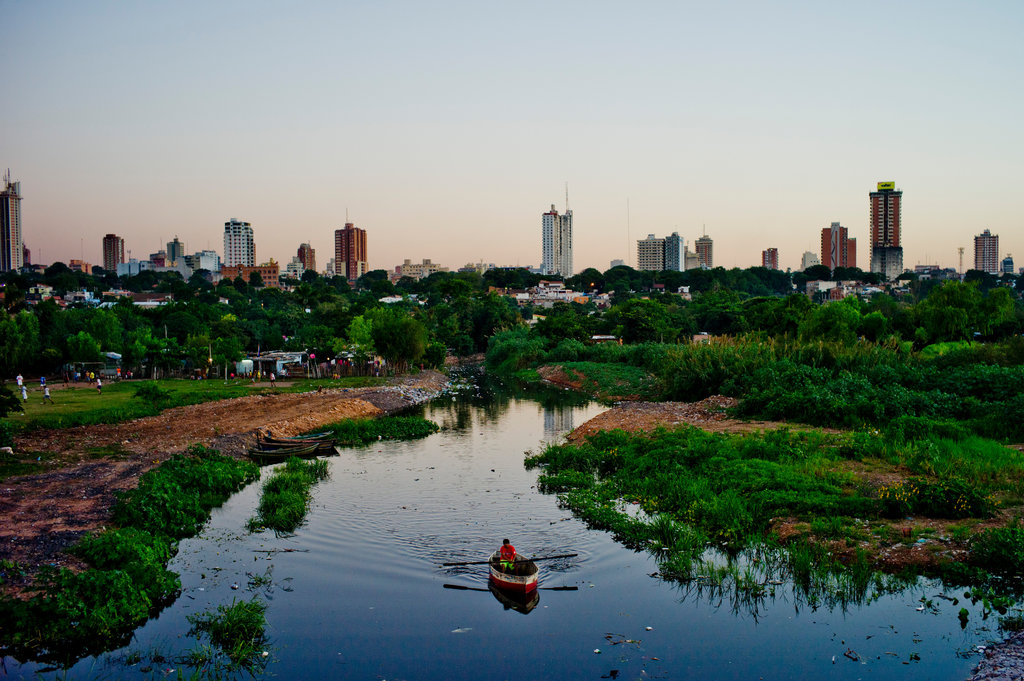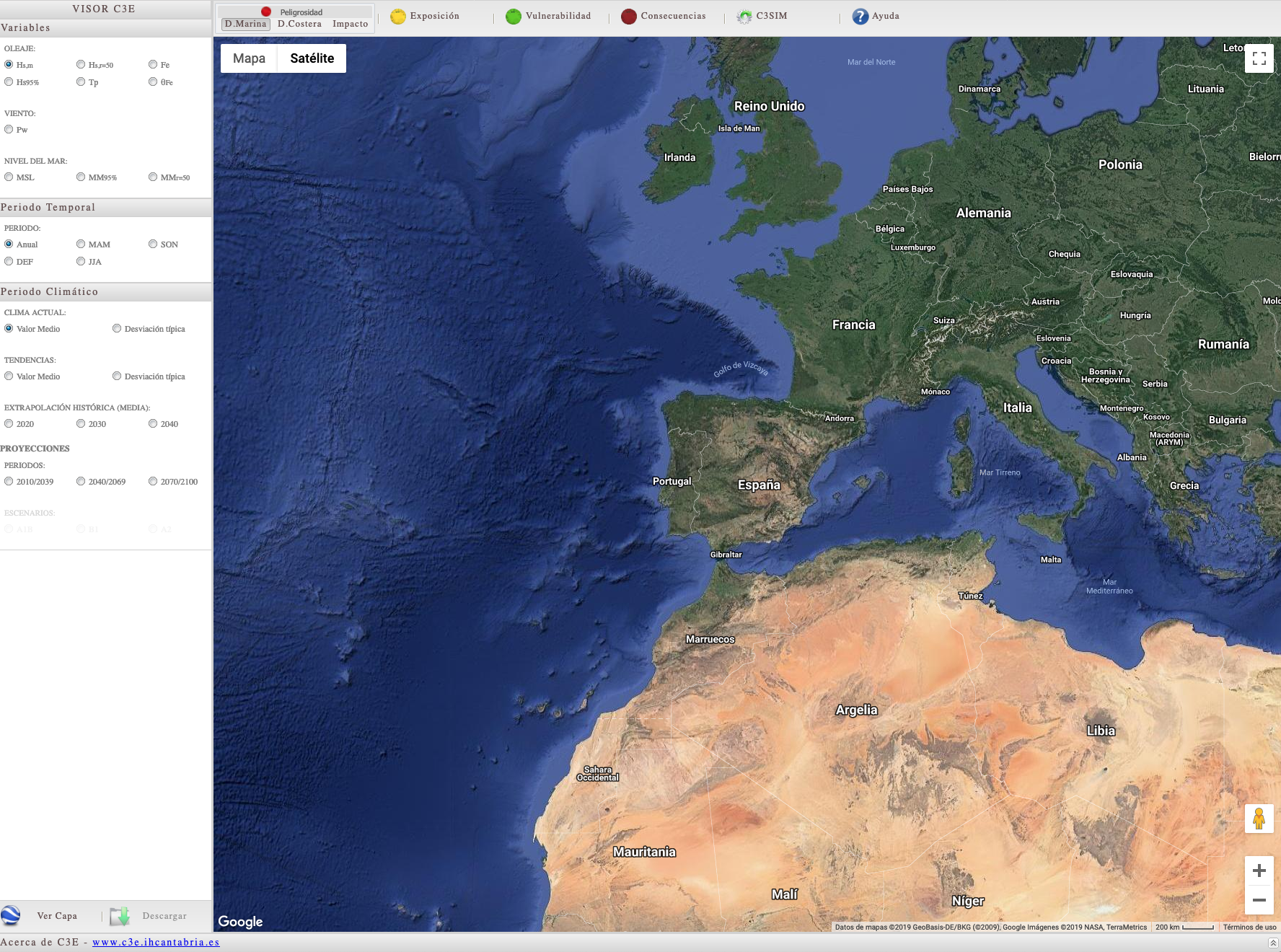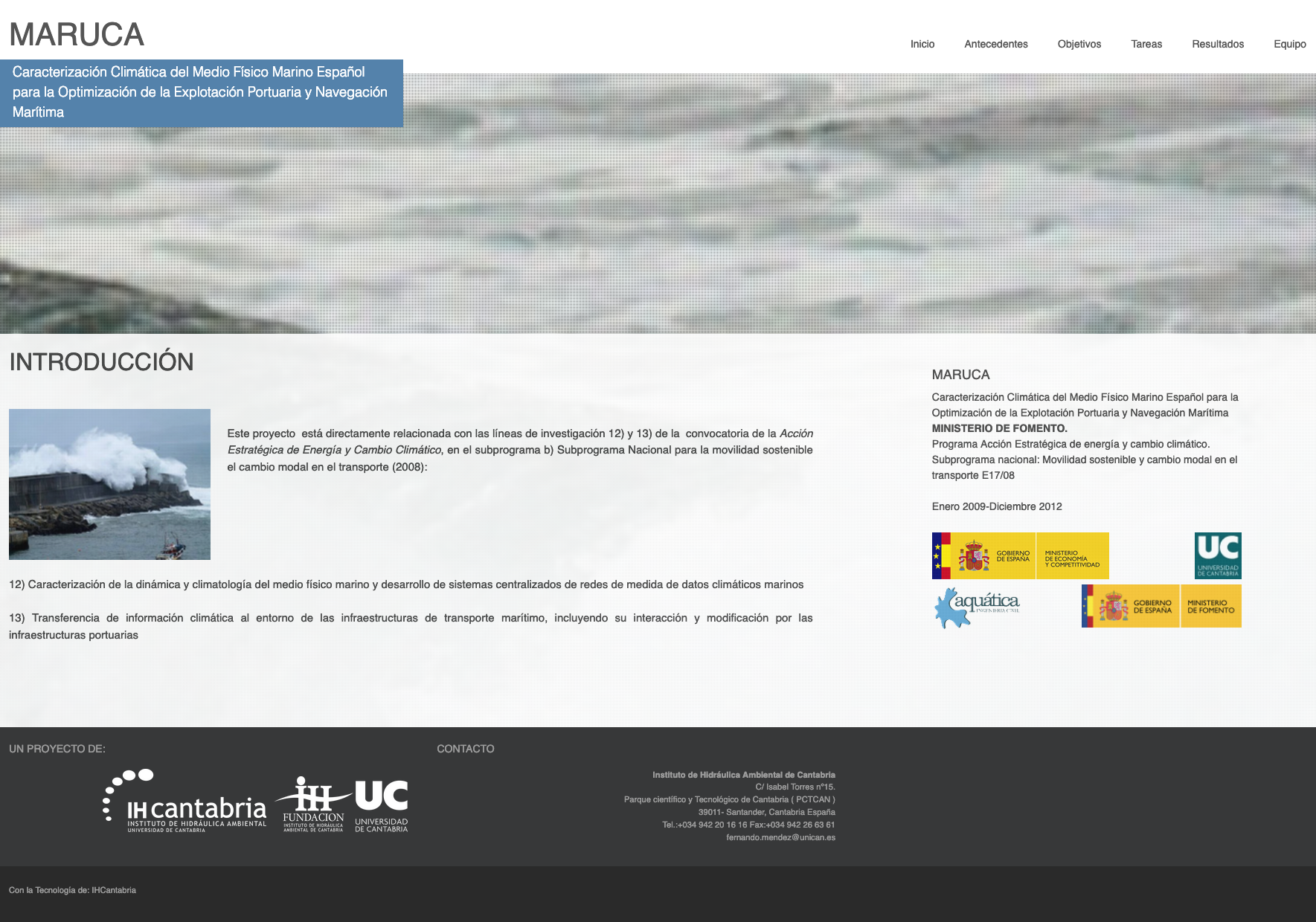CLIMATE CHARACTERIZATION
The climate is one of the main factors that condition society’s way of life. The climate, however, requires a broader and more complex study than a simple description of the meteorological-oceanographic conditions at a given time, or their short-term forecast (operational systems).
The goal of climate characterization is to provide information on the conditions of the average state of the climate system (considering the atmosphere, hydrosphere, cryosphere, lithosphere and biosphere and their iterations), as well as its anomalies based on an understanding of its natural variability on different time scales (e.g. seasonal, inter-annual, centuries). Climate characterization thus provides a basis for the development of any personalized climate service, which allows for a more competitive and resilient society.
In addition to characterizing the usual climate conditions, it is important to mention two elements – significant due to their potential impacts – within climate characterization: extreme weather phenomena and the changes in climate that global warming due to human activity can cause.
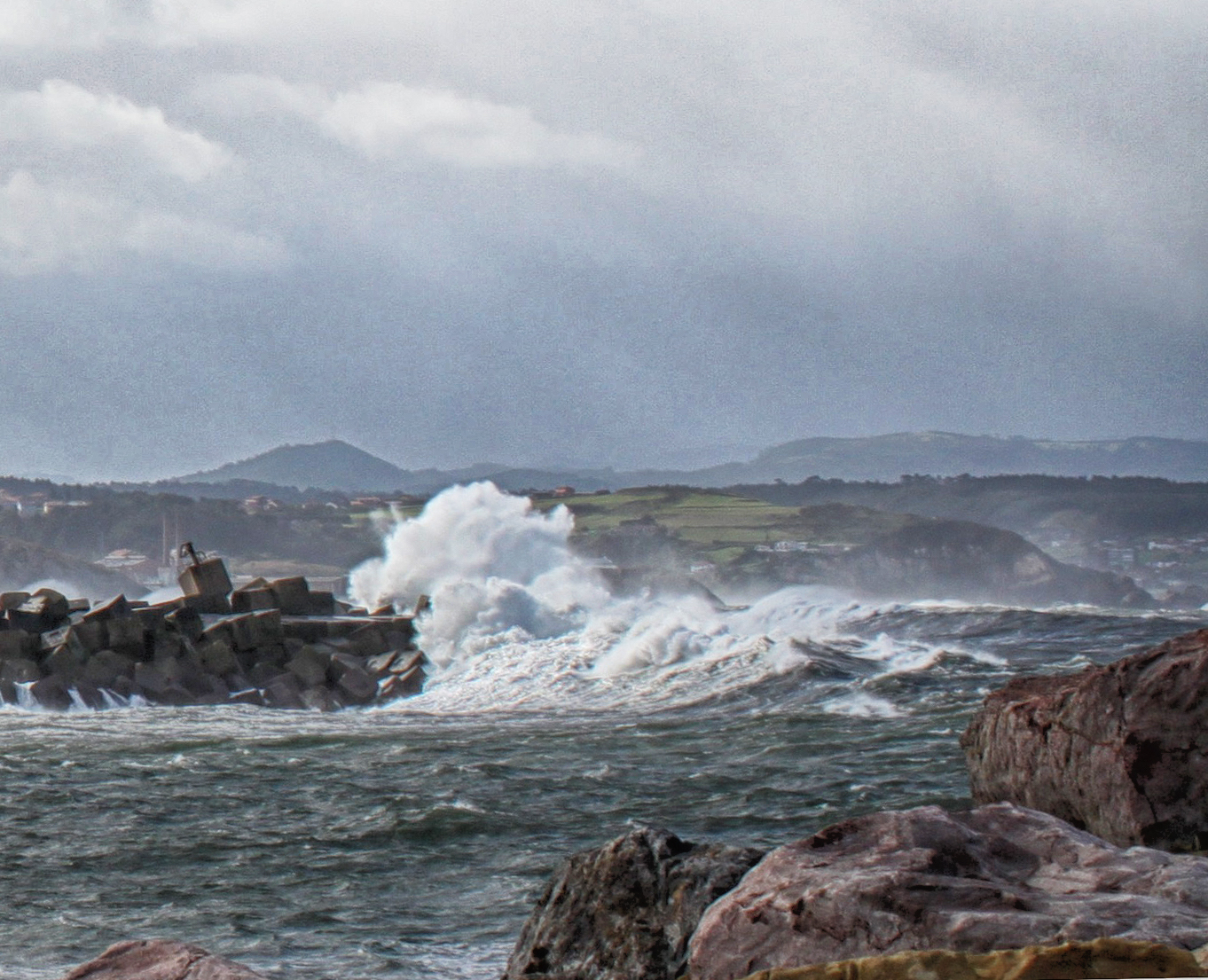
Methodology
Consulting
We study at local/regional scale the complexity of climatic conditions and their impact on society, identifying the main dominant climate variables and physical processes to consider, and climate agents that lead to hazards.
Consulting
We study at local/regional scale the complexity of climatic conditions and their impact on society, identifying the main dominant climate variables and physical processes to consider, and climate agents that lead to hazards.
Databases
We gather and, if necessary we develop databases needed to conduct a robust climate study.
Databases
We gather and, if necessary we develop databases needed to conduct a robust climate study.
SCALING OF CLIMATE STUDY
In order to carry out an adequate climate study, the work method has to be scaled spatially based on the objective of the study. Because of this, our climate studies can use approaches based on first identifying a local problem, employing both downscaling and upscaling techniques, and top-down and bottom-up approaches (the former analyzes the problem from a larger to smaller spatial scale).
SCALING OF CLIMATE STUDY
In order to carry out an adequate climate study, the work method has to be scaled spatially based on the objective of the study. Because of this, our climate studies can use approaches based on first identifying a local problem, employing both downscaling and upscaling techniques, and top-down and bottom-up approaches (the former analyzes the problem from a larger to smaller spatial scale).
Mathematical-statistical analysis
Different techniques have to be used, depending on the ultimate goal of the climate analysis. We work with a wide range of methods and tools in the fields of data mining, machine learning, multivariate analysis, specialized methods for time series, numerical modeling, extreme event analysis, classification methods, non-linear regression, etc. Importantly, given the nature of the climate system, we always evaluate and quantify the degree of uncertainty/confidence of the study conducted.
Mathematical-statistical analysis
Different techniques have to be used, depending on the ultimate goal of the climate analysis. We work with a wide range of methods and tools in the fields of data mining, machine learning, multivariate analysis, specialized methods for time series, numerical modeling, extreme event analysis, classification methods, non-linear regression, etc. Importantly, given the nature of the climate system, we always evaluate and quantify the degree of uncertainty/confidence of the study conducted.
DEVELOPMENT OF CLIMATE PRODUCTS
Our goal is to provide climate information that is useful for decision making. Therefore, we always make an additional effort to develop customized products that allow us to successfully transfer the climate characterization performed.
DEVELOPMENT OF CLIMATE PRODUCTS
Our goal is to provide climate information that is useful for decision making. Therefore, we always make an additional effort to develop customized products that allow us to successfully transfer the climate characterization performed.
AREAS OF EXPERTISE
Standard climate studies
Statistical determinations.
Joint distributions of climate variables.
Mean and extreme regimes.
Climate characterization required in national and international regulations.
Estimation of possible changes in climate conditions due to climate change.
Analysis of climate variability on different time scales
Studies related to time scales, from the short term (diurnal variation, seasonality), medium term (changes over years/decades), through the long term (historical trends, climate projections for climate change scenarios).
Application of downscaling techniques (dynamic, statistical and hybrid) to increase the spatial resolution of climate information
With specific experience in atmospheric (e.g. wind), marine (e.g. sea level, waves, currents), and hydrological (e.g. flow) variables.
Analysis of extreme weather events
Detailed studies (e.g. flooding risk, estimation of values associated with high return periods) based on the most current numerical tools and statistics to characterize extreme weather conditions, both in extra-tropical (storms, flooding) and tropical (extreme climate associated with tropical cyclones) regions, always providing probabilistic information.
SIGNIFICANT PROJECTS
EFFECTS OF CLIMATE CHANGE ON THE COASTS OF LATIN AMERICA AND THE CARIBBEAN – C3A
Includes a study of approximately 72,182 km of coastline that analyzed the changes identified in coastal dynamics, the influence of climate variability, various sources of information on the vulnerability of the coasts (physical and socioeconomic environment), the physical layout of the coast and foreseeable impacts and risks.
Learn More
EFFECTS OF CLIMATE CHANGE ON THE COASTS OF LATIN AMERICA AND THE CARIBBEAN – C3A
Includes a study of approximately 72,182 km of coastline that analyzed the changes identified in coastal dynamics, the influence of climate variability, various sources of information on the vulnerability of the coasts (physical and socioeconomic environment), the physical layout of the coast and foreseeable impacts and risks.
Learn More
CURRENT RISK OF EXTREME WINDS AND WAVES FOR INSURANCE, SILVICULTURE AND OFFSHORE ENERGY – WINDSURFER
European project that is based on developing new methods and tools to better quantify the current risk, and possible future changes, from extreme winds and waves, with a particular focus on the insurance, forestry and offshore energy sectors. The goal of the project is to provide localized climate information and evaluate the associated risk.
Learn More
CURRENT RISK OF EXTREME WINDS AND WAVES FOR INSURANCE, SILVICULTURE AND OFFSHORE ENERGY – WINDSURFER
European project that is based on developing new methods and tools to better quantify the current risk, and possible future changes, from extreme winds and waves, with a particular focus on the insurance, forestry and offshore energy sectors. The goal of the project is to provide localized climate information and evaluate the associated risk.
Learn More
CLIMATE CHANGE ON THE SPANISH COAST – C3E.
Project financed by the MAGRAMA (Ministry of Agriculture, Food and the Environment), conducted as part of the PNACC (National Plan to Adapt to Climate Change), where the potential impacts of climate change on some of the most significant components on the Spanish coast were evaluated. The results of the project provided the basis for preparing the “Strategy to adapt the coast to the effects of climate change”, in accordance with the provisions of Law 2/2013 of 29 May, on the protection and sustainable use of the coast and amending Law 22/1988, of 28 July, on Coasts.
Learn More
CLIMATE CHANGE ON THE SPANISH COAST – C3E.
Project financed by the MAGRAMA (Ministry of Agriculture, Food and the Environment), conducted as part of the PNACC (National Plan to Adapt to Climate Change), where the potential impacts of climate change on some of the most significant components on the Spanish coast were evaluated. The results of the project provided the basis for preparing the “Strategy to adapt the coast to the effects of climate change”, in accordance with the provisions of Law 2/2013 of 29 May, on the protection and sustainable use of the coast and amending Law 22/1988, of 28 July, on Coasts.
Learn More
maruca
Climate characterization of Spain’s marine physical environment to optimize port and maritime operations
Learn More
maruca
Climate characterization of Spain’s marine physical environment to optimize port and maritime operations
Learn More
LET’S TALK.
Would you like to know how we can help you?
Send me a message. I will get back to you as soon as possible
LET’S TALK
Would you like to know how we can help you?
Send me a message. I will get back to you as soon as possible

MELISA MENÉNDEZ GARCÍA
Researcher || Expert in Climate Characterization
We advise you that your personal data will be processed by FUNDACIÓN INSTITUTO HIDRÁULICA AMBIENTAL DE CANTABRIA, in order to manage your request and maintain professional and commercial relations with you. Your data will not be transferred to third parties. This data treatment is necessary to attend your request. Your data will be kept until you unsubscribe from the service and/or after a reasonable time has passed since we attended to your request. You can exercise your rights of access, rectification, cancellation, opposition, portability and limitation of the processing of your data by contacting the FUNDACIÓN INSTITUTO HIDRÁULICA AMBIENTAL DE CANTABRIA, PCTCAN C/ISABEL TORRES, 15, 39011 SANTANDER (CANTABRIA), or rgpdihcantabria@unican.es with a copy of your ID card duly accrediting your identity. In any situation, you have the right to file a complaint with the Spanish Data Protection Agency (AEPD)

